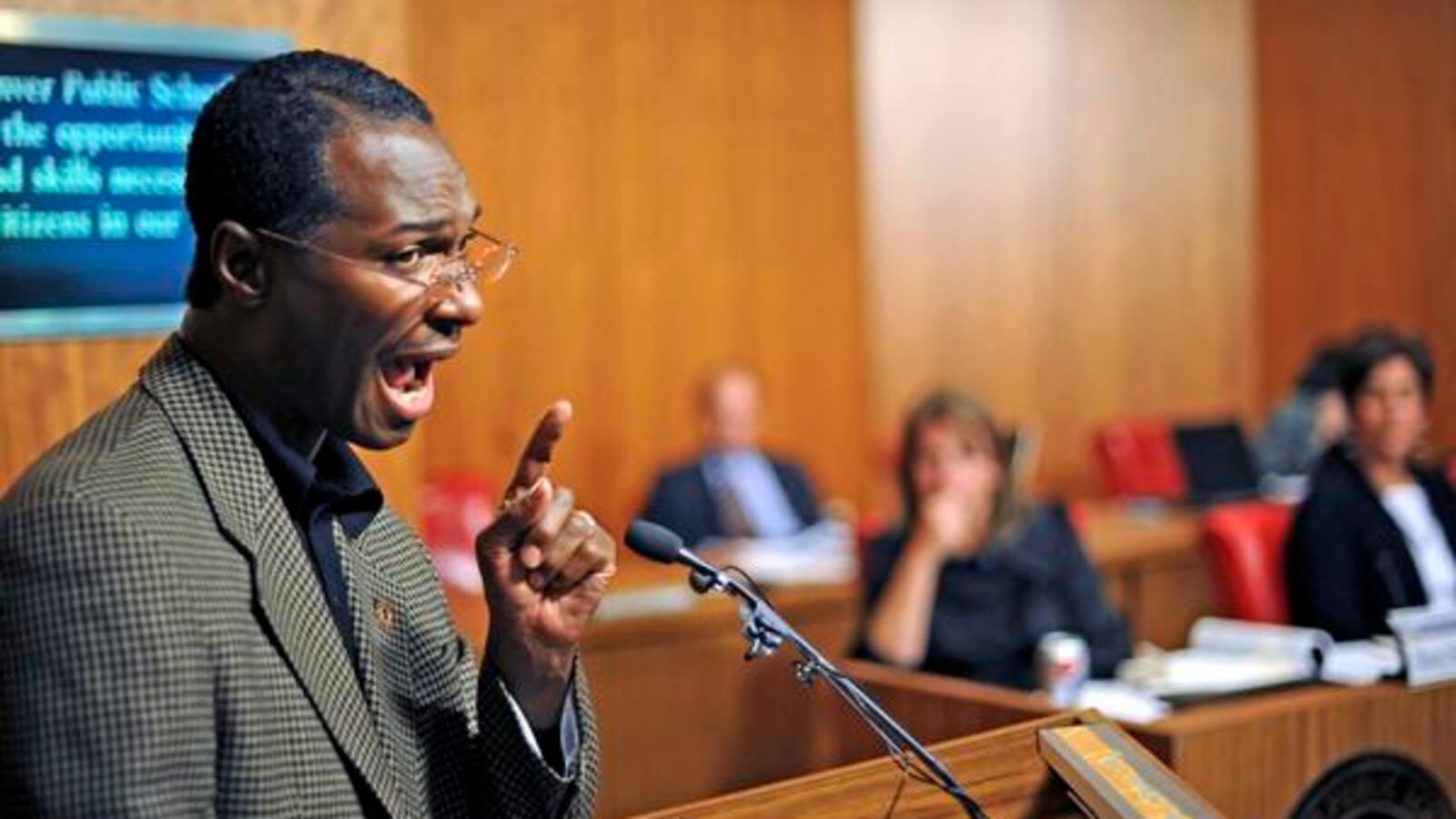A Denver school board member who was instrumental in advancing controversial school reforms in the far northeast reaches of the city announced his resignation Tuesday, creating an unexpected vacancy with uncertain implications.
In breaking the news to colleagues, Landri Taylor cited his wife’s health struggles and imminent plans to move to Aurora to be closer to their grandchildren.
Taylor’s departure will not shift the balance of the power on the governing board of the state’s largest school district, which unanimously supports the policies of Superintendent Tom Boasberg. Still, the board’s looming appointment of a replacement means a new voice will represent a part of the city that has long been a focal point for efforts to lift student achievement.
“I look forward to this next chapter in my life, my family’s life,” Taylor told colleagues Tuesday at a board work session. “At the same time, as I will say on Thursday, I am not invisible. I will be around.”
The school board will vote Thursday on a resolution accepting Taylor’s resignation, which will be effective that night. Under state law, the board has 60 days to choose a successor. Board president Anne Rowe said DPS soon will lay out details of how would-be candidates can apply.
Rowe said in an interview that Taylor shared his plans to resign about a week ago. While Taylor is not as vocal as other board members, “when he speaks and when he particularly speaks impassionately, it really moves you. He seems to have a true understanding of the community,” Rowe said.
“His legacy is extraordinary,” she said. “His commitment to serve Denver, its citizens and its children has been nothing less than remarkable. His impact is seen in so many ways, not just in our city at large, but particularly northeast Denver.”
Taylor, 65, was appointed to the District 4 board seat on an interim basis in 2013 after his predecessor, Nate Easley, resigned to run the Denver Scholarship Foundation. The board was divided when Taylor joined, and his seat often represented a swing vote on district policies. Taylor won election later in 2013, and his term was set to expire in 2017.
Last November’s election shifted the votes in favor of the Boasberg administration from 6-1 to 7-0 — though the board has pushed back at times, too.
Taylor has been a reliable supporter of DPS school reforms, although he chafed at the suggestion that he was simply a Boasberg yes-man. Boasberg in January began a six-month unpaid leave with his family in South America.
A longtime ally of Denver Mayor Michael Hancock, Taylor helped press the case for DPS reforms in Far Northeast Denver before he joined the school board.
Arguably the most ambitious school improvement effort taken on by DPS, the blueprint involved closing low performing schools, extending school days and opening charter schools.
Taylor previously served as head of the Urban League of Denver, and before that worked for the company that redeveloped the former Stapleton airport site into a nationally recognized mixed-use development. He has taken on a variety of civic roles, serving on board and commissions covering issues ranging from transportation and libraries to higher education.
The city’s northeast quadrant Taylor represents has long been diverse — it includes the heart of Denver’s African-American community — and has been gentrifying in recent years.
EDITOR’S NOTE: DPS board president Anne Rowe is married to Frank Rowe, Chalkbeat’s director of sponsorships. Frank Rowe’s position is not part of Chalkbeat’s news operation.
Here is the text of Taylor’s resignation:

